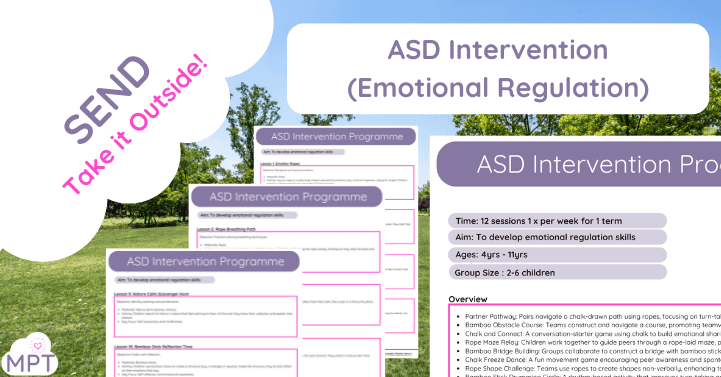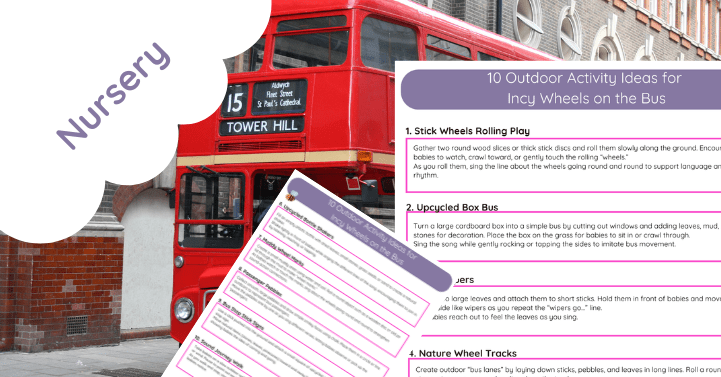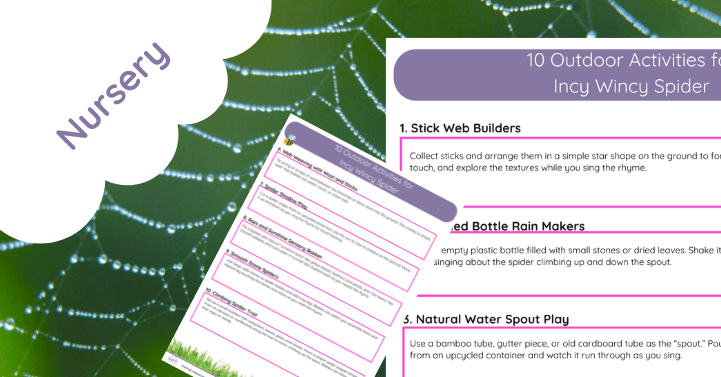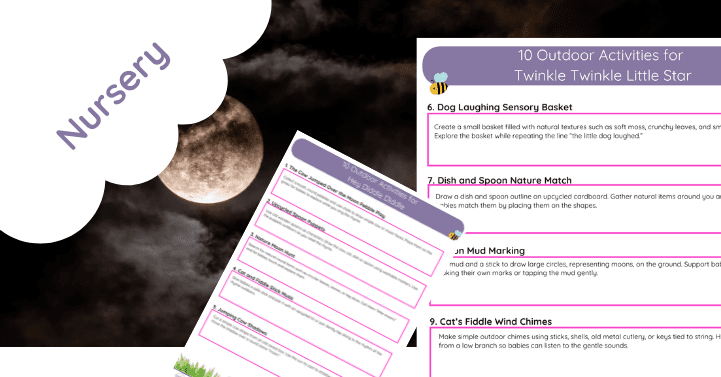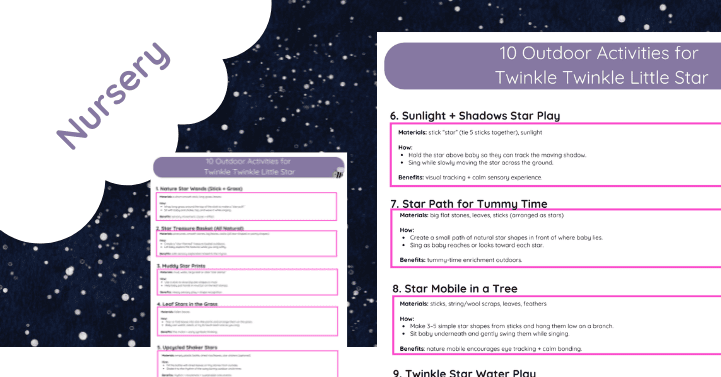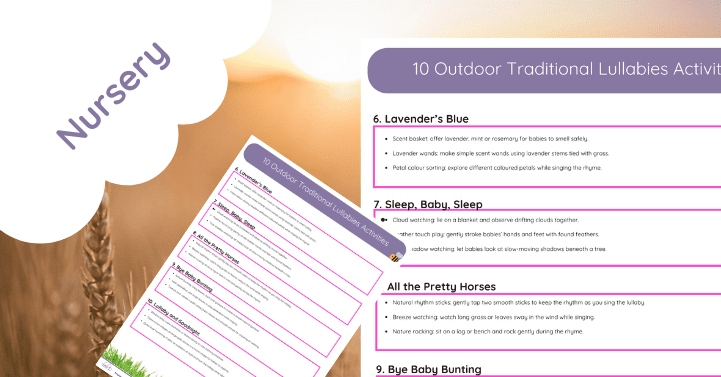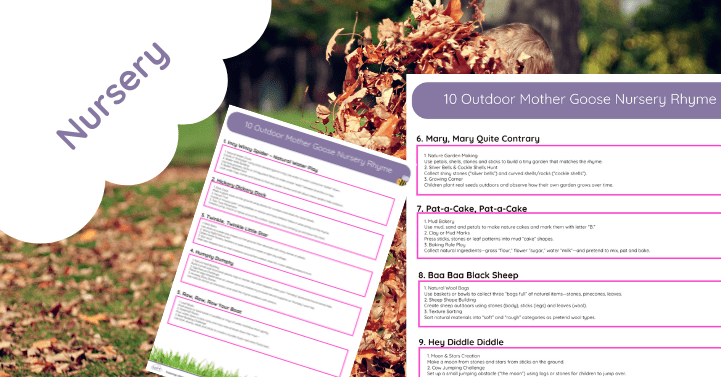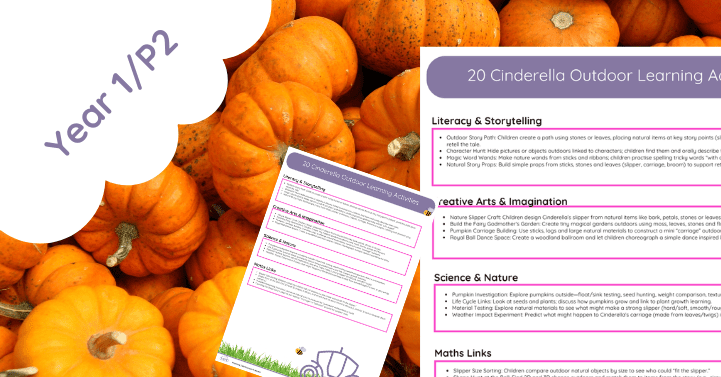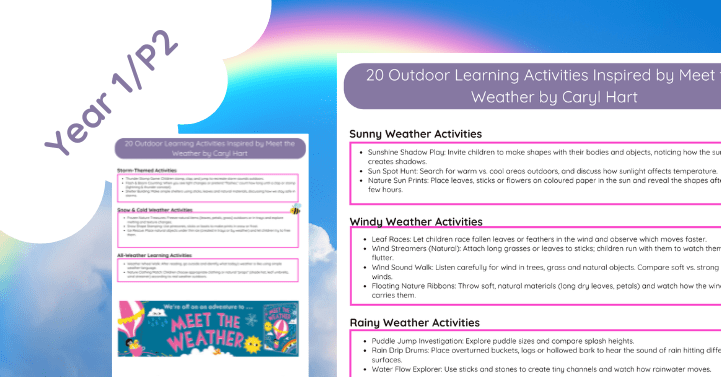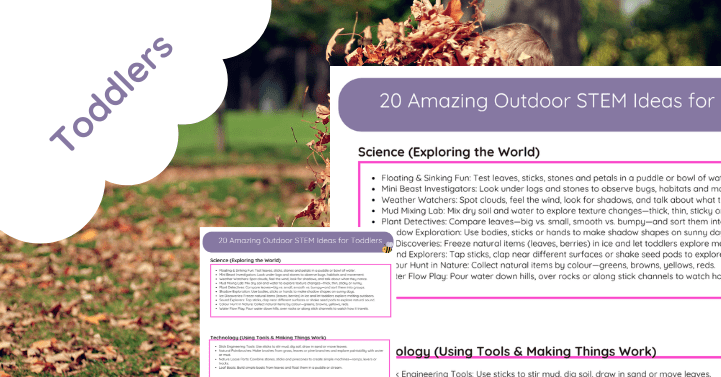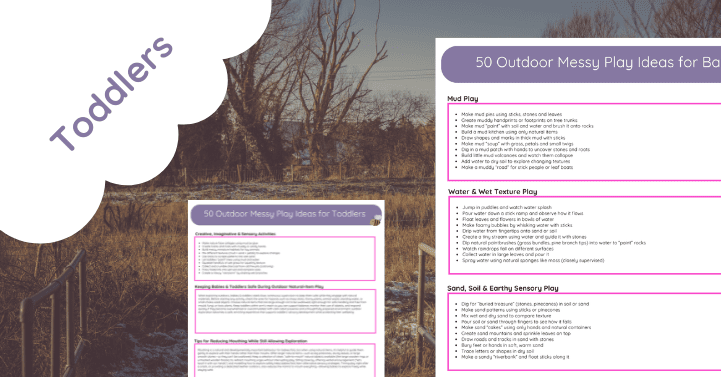ASD Intervention – Emotional Regulation Programme
Empower children with Autism Spectrum Disorder (ASD) to better understand and manage their emotions with our Emotional Regulation Programme. Designed specifically for educators, caregivers, and therapists, this innovative programme uses the Muddy Puddle Teacher approach to create a sensory-rich, nature-based intervention that promotes emotional well-being and self-regulation.
Key Features:
- Nature-Focused Activities: Engage children in calming, hands-on outdoor lessons that connect them with natural elements like clay, rope, bamboo sticks, and their surroundings.
- 12-Step Programme: A comprehensive series of 12 lessons designed to build emotional awareness, resilience, and self-regulation skills gradually.
- Inclusive and Adaptable: Activities are tailored to meet the diverse needs of neurodivergent learners, making them accessible for a range of abilities.
- Multisensory Engagement: Utilizes tactile, visual, and movement-based methods to help children better process and express their emotions.
- Skills for Life: Teaches coping mechanisms and emotional literacy that children can carry daily.
What’s Included:
- Detailed lesson plans with step-by-step instructions.
- Easy-to-source materials: clay, rope, bamboo sticks, and natural items.
- Strategies for creating a safe, supportive environment.
- Reflection activities to track progress and build connections.
Benefits:
- Encourages mindfulness and self-awareness through grounding exercises.
- Reduces stress and anxiety with calming, sensory-focused tasks.
- Enhances social-emotional learning by teaching children to recognize and articulate their feelings.
- Fosters collaboration and trust through interactive group activities.
- Creates a positive, inclusive outdoor learning environment.
Perfect For:
- Educators seeking innovative ASD-friendly interventions.
- Caregivers are looking for practical tools to support emotional regulation.
- Therapists incorporate outdoor elements into their sessions.
Transform emotional challenges into opportunities for growth and connection with the ASD Intervention – Emotional Regulation Programme. Designed to inspire confidence, build resilience, and nurture well-being, this programme is your pathway to meaningful and effective intervention.
Engaging children with Autism Spectrum Disorder (ASD) in outdoor activities offers numerous benefits that can enhance their development and well-being. Nature-based interventions provide sensory-rich experiences that promote emotional regulation, social interaction, and physical health.
Benefits of Outdoor Interventions for Children with ASD
- Sensory Integration: Natural environments offer diverse sensory stimuli that can help children with ASD process sensory information more effectively. Activities like walking on uneven terrain or listening to birdsong engage multiple senses, aiding in sensory integration.
- Social Skills Development: Group-based nature activities encourage peer interaction and communication. Participating in cooperative tasks, such as building a shelter or engaging in team games, fosters social engagement and teamwork.
- Emotional Regulation: Exposure to natural settings has a calming effect, reducing anxiety and stress levels in children with ASD. Engaging with nature can improve mood and emotional well-being.
- Physical Health: Outdoor play promotes physical activity, improving motor skills, coordination, and overall fitness. Activities like climbing, running, and jumping are beneficial for physical development.
- Cognitive Development: Nature-based activities stimulate curiosity and exploration, enhancing cognitive functions such as attention, problem-solving, and creativity. Interacting with the natural world provides opportunities for experiential learning.
Implementing Nature-Based Interventions
To effectively incorporate outdoor activities into interventions for children with ASD, consider the following strategies:
- Structured Activities: Design activities with clear instructions and predictable outcomes to provide security and understanding. Structured nature walks or guided exploration can be beneficial.
- Sensory Considerations: Be mindful of sensory sensitivities; choose environments that are not overwhelming and introduce new sensory experiences gradually. Providing options like noise-canceling headphones or allowing children to engage at their own pace can help.
- Inclusive Play Spaces: Create outdoor areas that are accessible and engaging for children with diverse needs, incorporating elements that cater to various sensory preferences. This includes tactile pathways, quiet zones, and interactive natural features.
- Parental Involvement: Encourage parents to participate in outdoor activities with their children, fostering bonding and reinforcing positive experiences. Family outings to parks or nature reserves can be both therapeutic and enjoyable.


